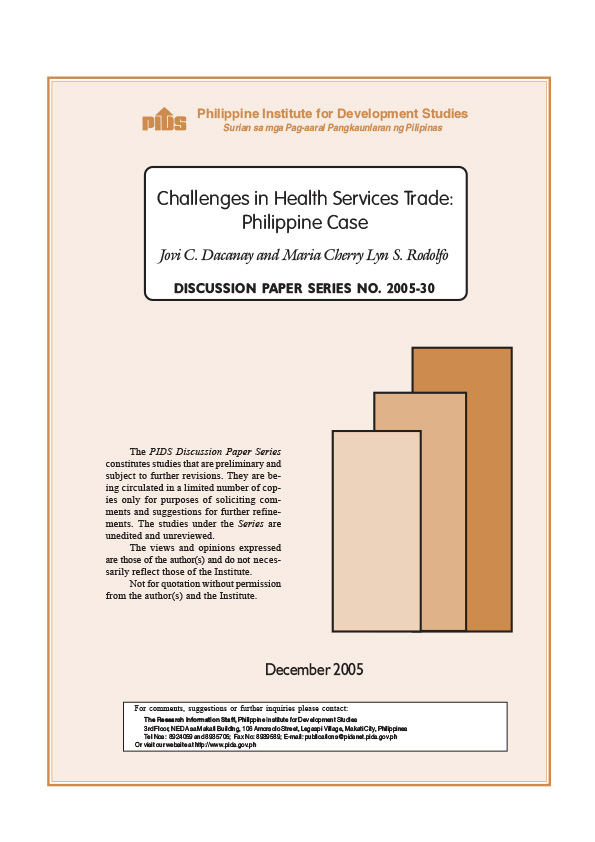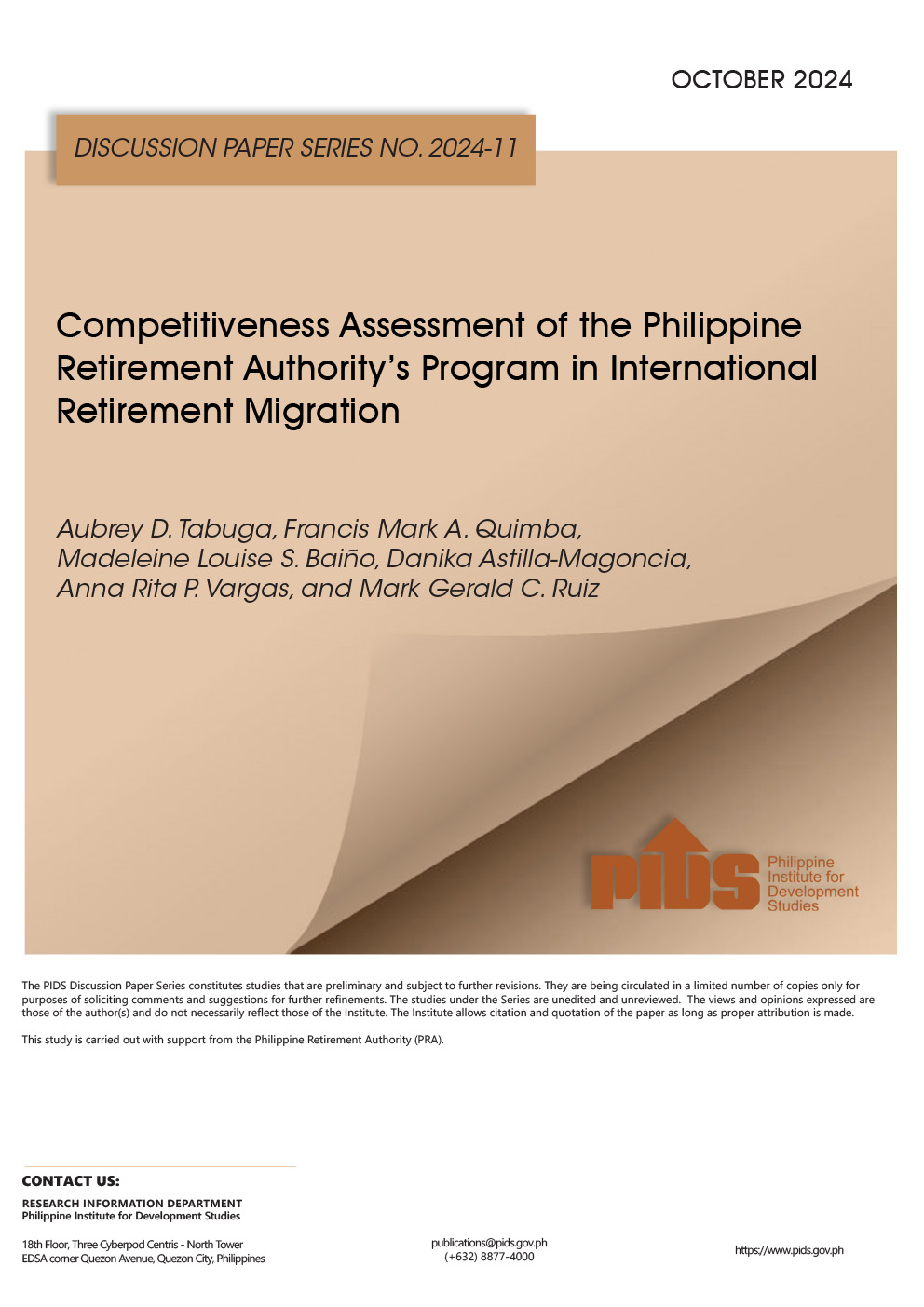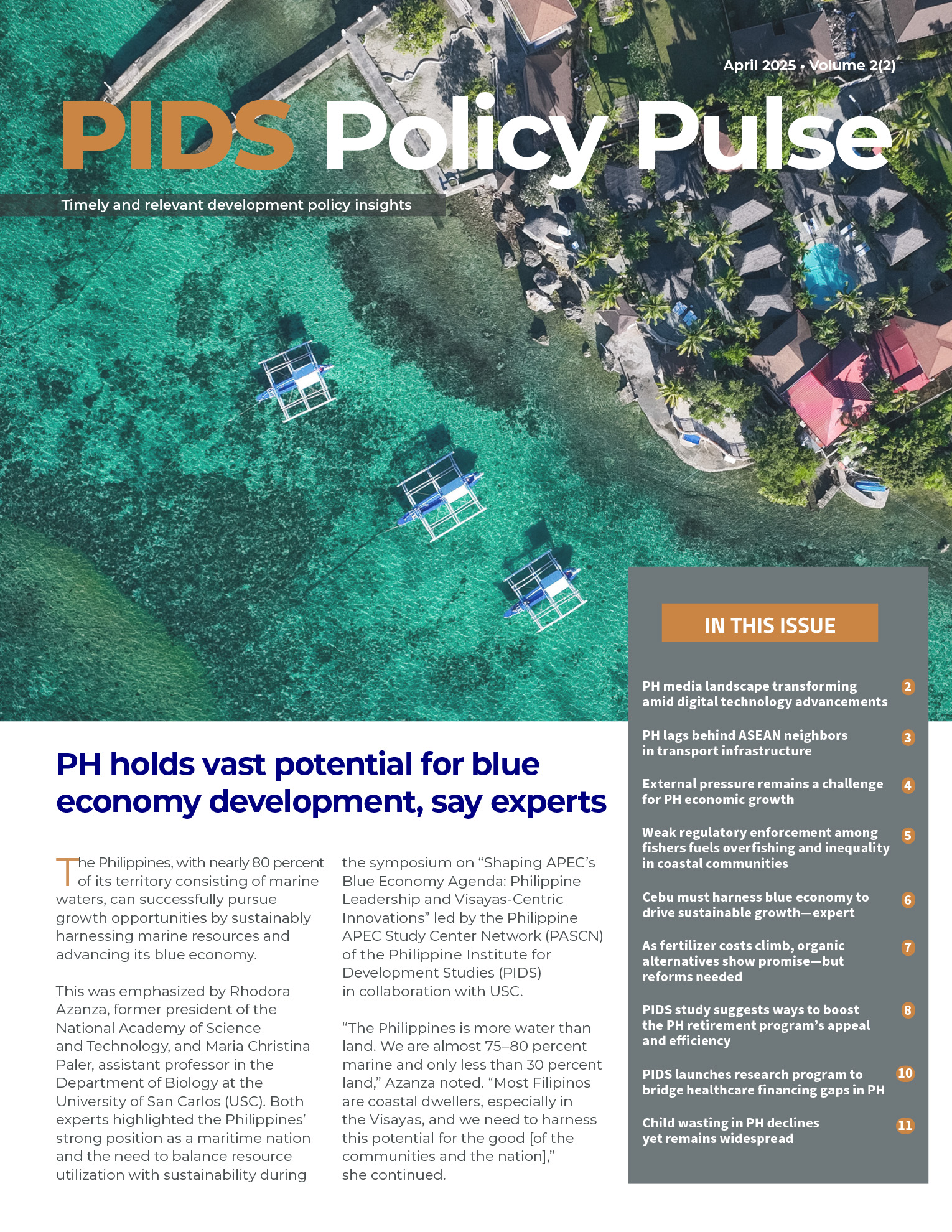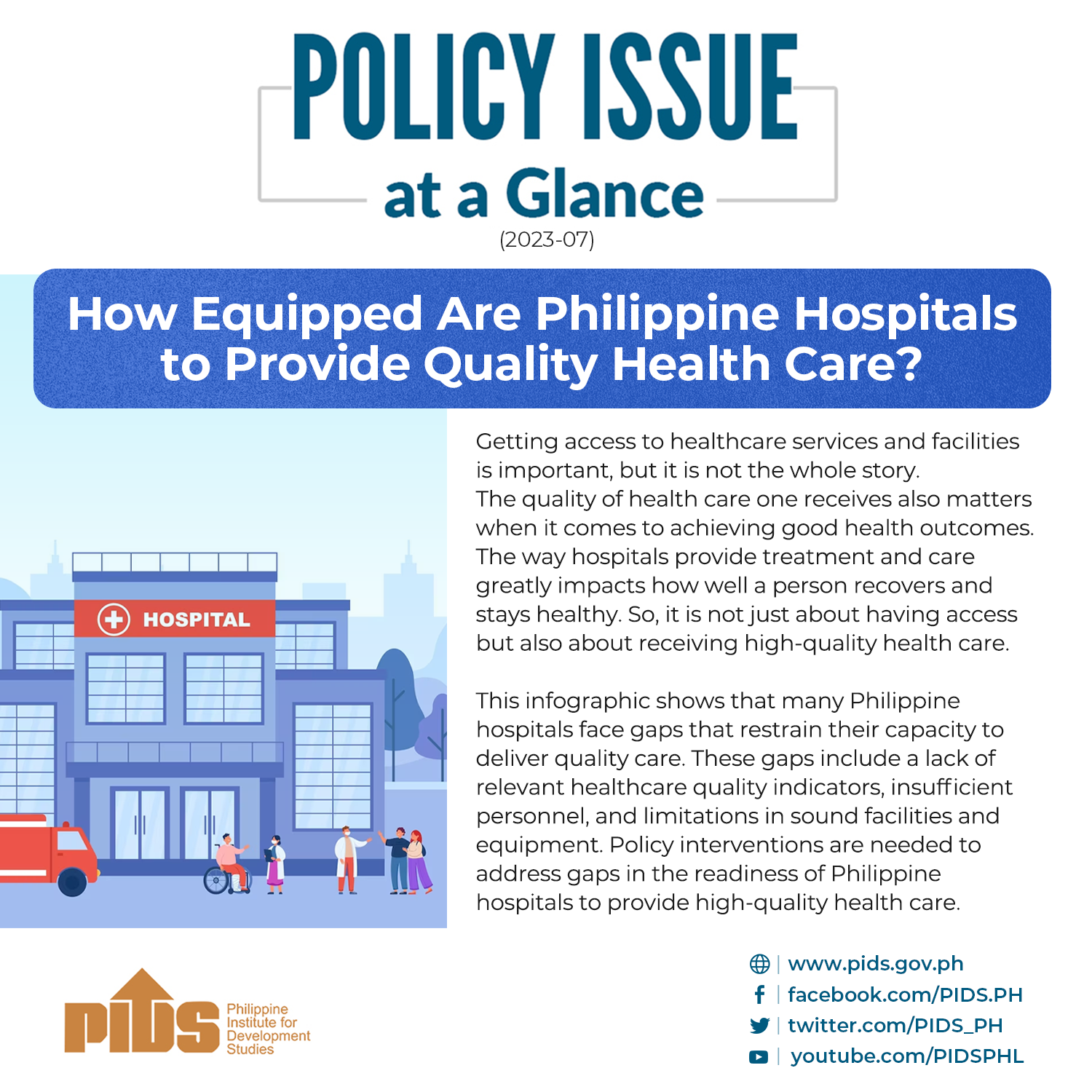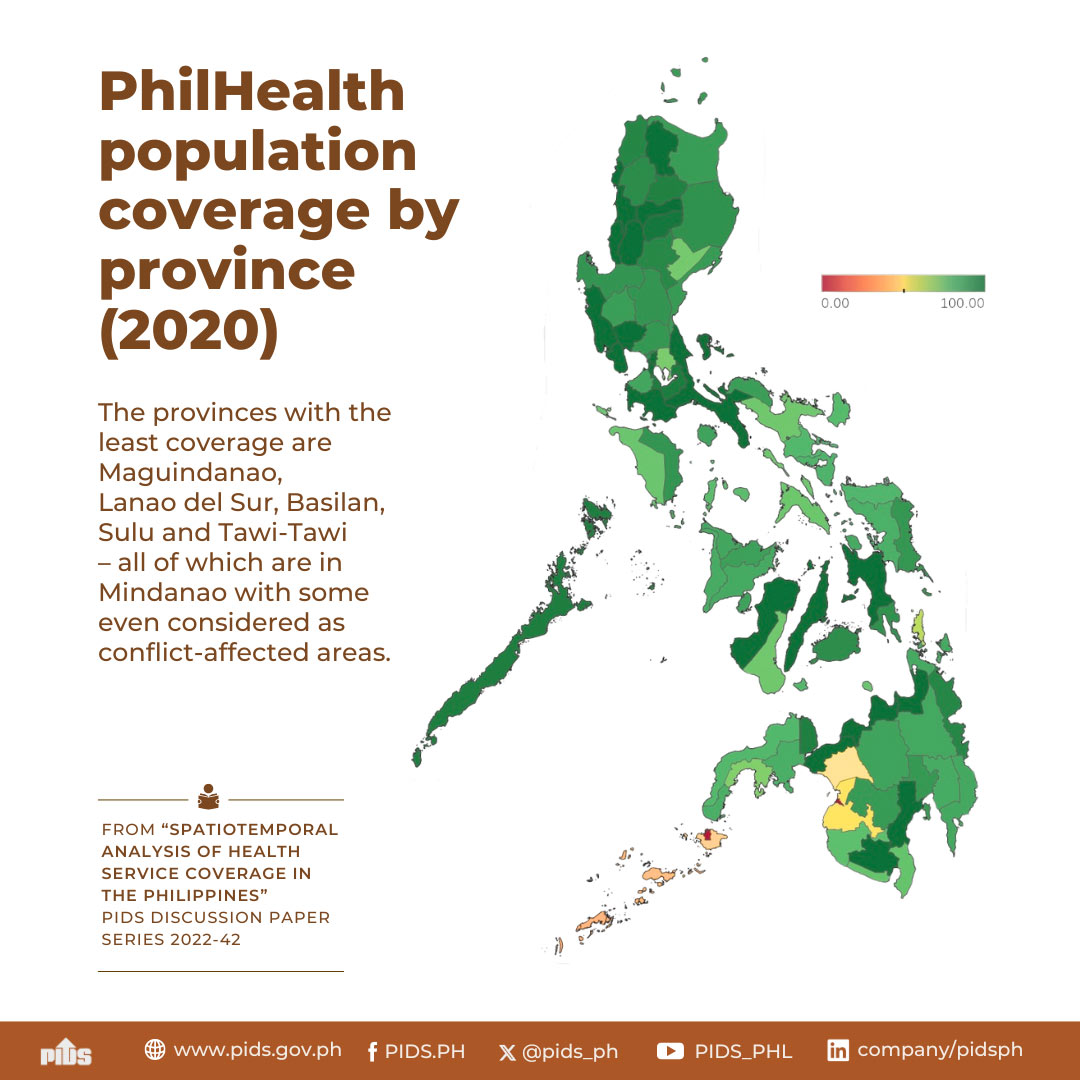There is a growing emphasis on the role of trade in health services (telehealth, health tourism and retirement, investments and deployment of medical professionals) in easing fiscal constraints, generating jobs and income, improving infrastructure and financing, and upgrading the capacities of health professionals. This paper seeks to identify the opportunities, barriers, and risks for the Philippines in participating in global trade in health services. It examines the country’s capabilities in engaging in trade and identifies strategic directions that the Philippines can pursue. It also presents the different market niches that can be tapped relative to the opportunities, namely: the aging populations of the Organisation for Economic Co-operation and Development (OECD) nations; the shortage of medical professionals in those countries; the long waiting lines in hospital facilities; the Health Insurance Portability and Accountability Act of the United States; and the poor healthcare systems in other countries. It also addresses the weaknesses in the supply capabilities of the country--the lack of a policy framework to develop the healthcare services sector in a globalized environment, the lack of human resources planning, and the lack of alignment in the initiatives of the government and private sector.
Citations
This publication has been cited 2 times
- Khatun, Fahmida and Mazbahul Golam Ahamad. 2012. Liberalising health services in South Asia: implications for Bangladesh. CPD Working Paper 96. Centre for Policy Dialogue (CPD).
- Thano, Rakela. 2013. Touristic investments in Saranda region. Romanian Economic Business Review, 8, no. 2, 117-130. Romanian-American University.

